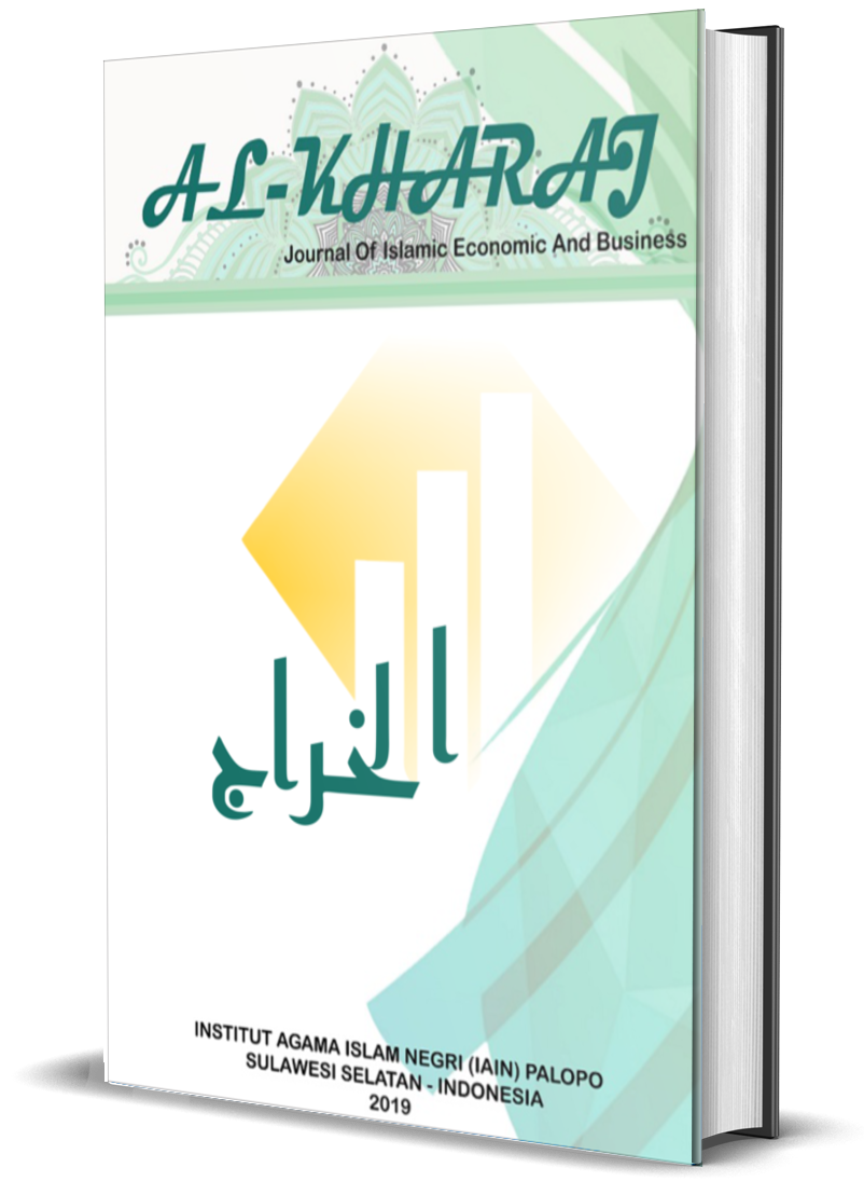The Relationship between Recruitment and Selection Methods with Human Resource Quality in the Shipping World: A Case Study on PT. Lighthouse Linta Sindo Shipping Company
DOI:
https://doi.org/10.24256/kharaj.v7i3.7709Keywords:
Work Motivation, Work Environment and Employee Performance Recruitment, Selection and Human Resources QualityAbstract
The purpose of this study is to analyze the relationship between recruitment and selection methods with the quality of human resources in the shipping world, specifically at PT. Pelayaran Mercusuar Linta Sindo. Data collection methods used were observation, literature study, and interviews. The data analysis used was descriptive qualitative. The results of the study indicate that the recruitment and selection methods to obtain the quality of the company's human resources have been carried out according to predetermined procedures. The requirements for the recruitment method begin with the submission of prospective workers until the ratification of the transfer order and work agreement. The recruitment method is adjusted between the abilities and competencies of job applicants and the company's needs, so that no jobs are filled by people who do not match their abilities and skills. Obstacles encountered in the recruitment method include incomplete applicant certificates and expired certificates, thus hampering the administrative selection or filing process. The recruitment and selection method is to identify areas of improvement and improve the quality of workers.
References
Arifin, R., Sutaryo, M., & Lestari, N. 2021. Competency-Based Recruitment in the Maritime Industry. Human Capital Review, 9(2), 112–125.
Armstrong, M. 2022. Armstrong's Handbook of Human Resource Management Practice. Kogan Page.
Dessler, G. 2020. Human Resource Management (15th ed.). Pearson Education.
Djio Gerald Paoki, 2020. The Importance of Recruitment and Selection Methods to Measure the Quality of Employee Performance,” J. Manaj. For Econ. Sciences and Library. UNMER, pp. 12–40.
E. Suparni, 2022. Recruitment and Selection Process at PT. Jamsostek. Vol. 1 No. 2 pp. 159-163.
Jannah, M., & Wahyudi, A. 2020. Strategic Human Resource Management in Maritime Industry. Journal of Maritime Business and Management, 5(1), 77–89.
Kim, S., Lee, H., & Park, J. 2023. Simulation-Based Selection and Its Impact on Employee Retention in Maritime Companies. Maritime HR Journal, 10(1), 45–60.
Lee, M., & Park, J. 2022. Recruitment Strategies and Employment Outcomes in Maritime Firms. International Journal of Maritime HR, 8(3), 210–224.
Lola Kori Lofika Lumban Raja, 2022. The Influence of Recruitment and Compensation on Employee Performance at the Grand Zuri Hotel Pekanbaru,” JOM FISIP, vol. 5, pp. 1–13.
Mondy, RW, & Noe, RM 2021. Human Resource Management (14th ed.). Pearson.
Mia, W. and F. Andreani, 2020. Analysis of Recruitment and Selection at PT Pelayaran Anugerah Wijaya Bersaudara,” AGORA, vol. 3, p. 2.
N. Nurfarizki, N. Syarweni, and DW Susyanti, 2020. Analysis of New Employee Recruitment & Selection at PT Baruna Dirga Dharma, Jakarta,” Epigram, vol. 15, no. 2, doi: 10.32722/epi.v15i2.1240.
Robbins, SP, & Judge, TA 2021. Organizational Behavior (18th ed.). Pearson.
Sugiharto, T., & Ningsih, S. 2023. The Effectiveness of Maritime Personnel Selection Methods. Maritime HR Journal, 9(4), 201–215.
Mujahidin, Rahmadani, N., & Putri, Q. A. R. (2024). Analysis of the Influence of Religiosity Values In Reducing Consumptive Behavior in Indonesian Muslim Consumers. Amwaluna: Jurnal Ekonomi dan Keuangan Syariah, 8(2), 253-274.
Wulandari, S., Irfan, A., Zakaria, N. B., & Mujahidin. (2024). Survey Study on Fraud Prevention Disclosure Measurement at State Islamic Universities in Indonesia. IQTISHODUNA: Jurnal Ekonomi Islam, 13(1), 327–348. https://doi.org/10.54471/iqtishoduna.v13i1.2305
Sapsuha, M. U., Alwi, Z., Sakka, A. R., & Al-Ayyubi, M. S. (2024). Review of Gold Trading Practices on Credit (non-Cash) Based on Hadith. Al-Kharaj: Journal of Islamic Economic and Business, 6(3).
Majid, N. H. A., Omar, A. M., & Busry, L. H., Mujahidin Reviving Waqf In Higher Education Institutions: A Comparative Review Of Selected Countries. European Proceedings of Social and Behavioural Sciences.
Ishak, I., Putri, Q. A. R., & Sarijuddin, P. (2024). Halal Product Assurance at Traditional Markets in Luwu Raya Based on Halal Supply Chain Traceability. Amwaluna: Jurnal Ekonomi dan Keuangan Syariah, 8(2), 224-240.
K, A. ., Astuti, A. R. T. ., & ., Mujahidin. (2024). The Impact of Word of Mouth and Customer Satisfaction on Purchase Decisions: The Role of Maslahah as an Intervening Variable in the Cosmetic Products Industry in Indonesia. Journal of Ecohumanism, 3(7), 1525–1540. https://doi.org/10.62754/joe.v3i7.4307
Arno, A., & Mujahidin, M. (2024). Enhancing Zakat Management: The Role of Monitoring and Evaluation in the Amil Zakat Agency. Jurnal Economia, 20(3), 397-418. doi:https://doi.org/10.21831/economia.v20i3.53521
Amiruddin, R., Abdullah, M. R., & Noor Bakri, A. (2025). The Influence of e-WOM, Fashion Trends, and Income on the Consumption Style of the Muslim Community in Palopo City: A Quantitative Analysis. El-Qist: Journal of Islamic Economics and Business (JIEB), 14(2), 185–205. https://doi.org/10.15642/elqist.2024.14.2.185-204
Meilany, R., Fasiha, F., & Moalla, M. (2025). The Role of Interest as a Mediator in The Relationship of Knowledge and Islamic Financial Inclusion to The Loyalty Costumers of Non-Muslim. IKONOMIKA, 10(1), 1-24.
Fiqran, M., Mujahidin, M., Bakri, A. N., & Abdulrahman, A. J. A. (2024). Motivation for Waqf in Millennials and Generation Z: Highlighting Religiosity, Literacy and Accessibility. IKONOMIKA, 9(2), 309-332.
Putri, Q. A. R., Fasiha, F., & Rasbi, M. (2024). Affiliate marketing and intention to adopt mudarabah: The mediating role of trust in Islamic financial decision-making. JEMA: Jurnal Ilmiah Bidang Akuntansi Dan Manajemen, 21(2), 337–362. https://doi.org/10.31106/jema.v21i2.23381
Downloads
Published
How to Cite
Issue
Section
Citation Check
License
Copyright (c) 2025 Andi Nasrun Cahyadi, Syahrir, Andi Arwinda Wildam

This work is licensed under a Creative Commons Attribution-ShareAlike 4.0 International License.
Authors retain copyright and grant the journal right of first publication with the work simultaneously licensed under a Creative Commons Attribution-ShareAlike 4.0 International License. In line with the license, authors are allowed to share and adapt the material. In addition, the material must be given appropriate credit, provided with a link to the license, and indicated if changes were made. If authors remix, transform or build upon the material, authors must distribute their contributions under the same license as the original.









